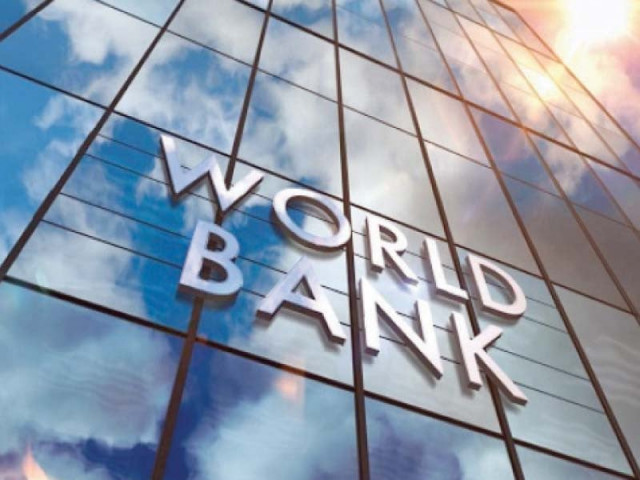World Bank agrees on new partnership strategy
It will help Pakistan press ahead with reforms, meet development goals

Pakistan and the World Bank on Wednesday agreed to collaborate on a new, robust and ambitious Country Partnership Framework to carry forward the country’s reform and development agenda.
The agreement was reached during a meeting between Prime Minister Muhammad Shehbaz Sharif and a World Bank delegation, led by its Regional Vice President for South Asia Martin Raiser.
Welcoming the VP, PM Shehbaz praised the World Bank’s contribution to the development of Pakistan. He appreciated the support extended by the bank for building climate-resilient infrastructure following the devastating floods of 2022. He informed the delegation about the reforms programme of Pakistan’s government including the digitisation of the entire tax system, improvement in the power sector, enhancing per-acre yields in the agriculture sector and addressing the child stunting challenge. Welcoming the reforms campaign, World Bank Regional VP Martin Raiser emphasised that the bank was ready to collaborate with Pakistan in its journey towards transformation of the economy and achieving sustainable development.
Both sides agreed to engage in a long-term, focused partnership under the new Country Partnership Framework with an annual review mechanism to assess progress and ensure the achievement of results.
The strategy will include flexibility for future course correction as well as the ambition to have transformational impact over a decade on a selective set of critical development priorities. The initial set of priorities discussed in the meeting included structural economic reforms and domestic resource mobilisation, particularly via digitalisation and tax policy reforms.
Human capital development, specifically addressing child stunting and improving foundational learning, was also taken up for discussion. Likewise, they reviewed energy sector reforms, including increased participation of the private sector in transmission and distribution, and transition to green energy to make energy cheaper, cleaner and financially sustainable.
To better cope with growing water scarcity and climate-related shocks, both sides underlined the need for collaboration in climate adaptation efforts. For increasing economic opportunities, including in the agriculture sector, Pakistan will benefit from the bank’s assistance in mobilising global expertise, adopting best practices, institutional capacity building, leveraging digital transformation and private sector participation, including via the World Bank’s private sector arm – the International Finance Corporation – and the Multilateral Investment Guarantee Agency.
They reached consensus that the process for preparation of the new Country Partnership Framework would involve consultations with federal and provincial governments as well as the academia, parliamentarians, the civil society, development partners and the private sector. The World Bank will coordinate with different stakeholders to discuss the partnership priorities duly aligned with the key development goals and the government’s strategy.
In this respect, a joint communique was signed on the occasion by World Bank Country Representative Najy Benhassine and Economic Affairs Division Secretary Dr Kazim Niaz. Economic Affairs Minister Ahad Khan Cheema, Finance Minister Muhammad Aurangzeb, Petroleum Minister Dr Musadik Malik, Minister of State for IT Shaza Fatima Khawaja and Planning Commission Deputy Chairman Dr Jehanzeb Khan were also present in the meeting.
Published in The Express Tribune, May 9th, 2024.
Like Business on Facebook, follow @TribuneBiz on Twitter to stay informed and join in the conversation.



















COMMENTS (3)
Comments are moderated and generally will be posted if they are on-topic and not abusive.
For more information, please see our Comments FAQ